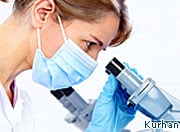A group of leading international scientists has warned the UK not to legalise a controversial three-parent baby technique over safety concerns, according to The Sunday Times.
In a letter to the Commons Science and Technology Committee, the scientists said the safety of the procedure, also known as mitochondrial replacement, “is not yet established sufficiently well to proceed to clinical trials”.
The committee is holding a one-day inquiry later this month into the three-parent baby technique, which involves replacing the nucleus in a healthy donor egg with the nuclear DNA from the prospective mother – resulting in a child with DNA from three parents.
Genetic engineering
Stuart Newman, a leading cell biologist and professor at New York Medical College, said the importance of the outer part of the donated egg is being downplayed.
He said a person created through the technique is “a product of wholesale genetic engineering”.
Last month, the New Scientist warned that the UK needs to have a “serious debate” about the ethics of the three-parent baby procedure.
Ethically troubling
The publication’s editorial pointed to recent research raising the “ethically troubling prospect” that children conceived through the procedure could “inherit vital traits from three parents”.
The magazine had previously dismissed ethical concerns, but said now it appears “we may have seriously underestimated the influence that mitochondria have”.
Earlier this year, the Government announced its support for techniques to create three and four-parent babies, despite more than 60 per cent of consultation respondents opposing the plans.
Parliament
Health minister Jane Ellison said regulations making the procedures legal would be put before Parliament.
If the law is changed, the UK would become the only country in the world to allow the techniques.

